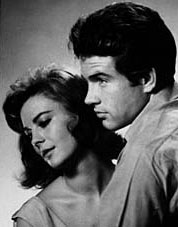Awhile back I happened to see that, if Sonia Sotomayor is confirmed, six of nine Supreme Court Justices will be Catholic. That got me thinking about other Catholics in government. Right off the top of my head, we’ve got the vice-president, Biden, and the Speaker of the House, Pelosi. The American spy network is now being run by Catholic Leon Panetta. And then with some internet checking, I found out that one third of Obama’s cabinet – an historic high – is Catholic, and that 26 out of 100 U.S. Senators and 161 out of 534 House members (30%) are Catholic. And, as of May 2005, the latest date for which I could find any information, 22 out of 50 governors were Catholic – a whopping 44%.
Since it now appears that Catholics are taking over this former Protestant country, what does that say about the direction of American politics and society? Will we soon be lining up lockstep with the Vatican? Will Catholic moral teaching become public policy, our version of Sharia?
I don’t think so. If you look at the polls, Catholic views on everything from abortion and gay marriage to the death penalty and immigration don’t differ significantly from those of the population at large. Even in important matters of Catholic doctrine, like the nature of the Eucharist, American Catholic views are all over the place. The fact is that most Catholics today share their Protestant cousins’ healthy skepticism of authority. This is America, after all, where truths are “self-evident” and not handed down by monarchs, secular or religious.
Fr. Andrew Greeley, stealing a few pages from theologian David Tracy, argues in his book
The Catholic Imagination that what really distinguishes Catholics and Protestants are not their beliefs. Rather, the difference between the two is most fundamentally a difference of imagination.
The Protestant imagination sees human existence as a solitary pilgrimage in a foreign, hostile land where the only hope lies in a very slim chance of salvation from a God generally displeased with us. “In short, [natural men] have no refuge, nothing to take hold of; all that preserves them every moment is the mere arbitrary will, and uncovenanted unobliged forbearance of an incensed God,” says Jonathan Edwards in his famous sermon. The Catholic, however, sees a more accessible God lurking everywhere: in candles, statues, stained glass windows, incense. Once you start regarding a lot of unremarkable stuff as sacred, it’s not too great a leap to imagine – as did Catholic poet Gerard Manley Hopkins – that the world itself “is charged with the grandeur of God.” General Loewenheim in the movie
Babette's Feast makes the point: “the moment comes when our eyes are opened, and we see and realize that grace is infinite.”
This sense of the world as a place of wonder and enchantment changes the focus of morality. While Protestants gird themselves with virtue to ward off a corrupt and godless world, Catholics don’t worry so much about resisting earthly delights (when has a Catholic ever passed up a drink or a good meal? and those red-hot Latin lovers, they’re Catholic, too). Another Catholic, Hilaire Belloc puts it this way:
Wherever the Catholic sun doth shine,
There’s always laughter and good red wine.
At least I’ve always found it so.
Benedicamus Domino!
Catholics, instead, follow a more communal morality. With their strong ties to family and neighborhood, Catholics judge morality in terms of how well they support and treat their clan rather than the degree of individual moral progress they’ve achieved. Even the mafia takes care of its own.
I’ve long maintained that Christianity is really just paganism brushed over with a thin veneer of respectability. With Catholicism, that veneer is even thinner, and slightly less respectable. Back in 601 AD, when St. Augustine of Canterbury wanted some papal guidance on whether he should be tearing down pagan Saxon temples in England, Pope Gregory wrote back and urged him to leave the temples standing. He told Augustine to just sprinkle them with some holy water and declare them Christian places of worship. The pope reasoned that this would make conversion easier: the Saxons “may the more familiarly resort to the places to which they have been accustomed.” Apparently, Augustine took this idea to heart and did pretty much the same thing with the Saxon holidays. The pagan festivals of Eostre and Yule were thus converted into Easter and Christmas, complete with the same customs. (With Easter, they didn’t even bother to change the name.) It is no accident that the Catholic imagination, with its emphasis on the presence of the divine among ordinary things, its tendency toward heathen revelry (think of the ethnic Catholic celebrations of St. Patrick’s Day, Cinco de Mayo and Oktoberfest) and its communitarian moral values, begins to resemble good old-fashioned paganism.
So, perhaps, this is where the Catholicization of America is leading: a society which looks more pagan, with a bit less temperance and more exuberance, an honest fidelity to the American tribe, and a sense that there is magic and possibility everywhere. Not entirely a bad thing.





